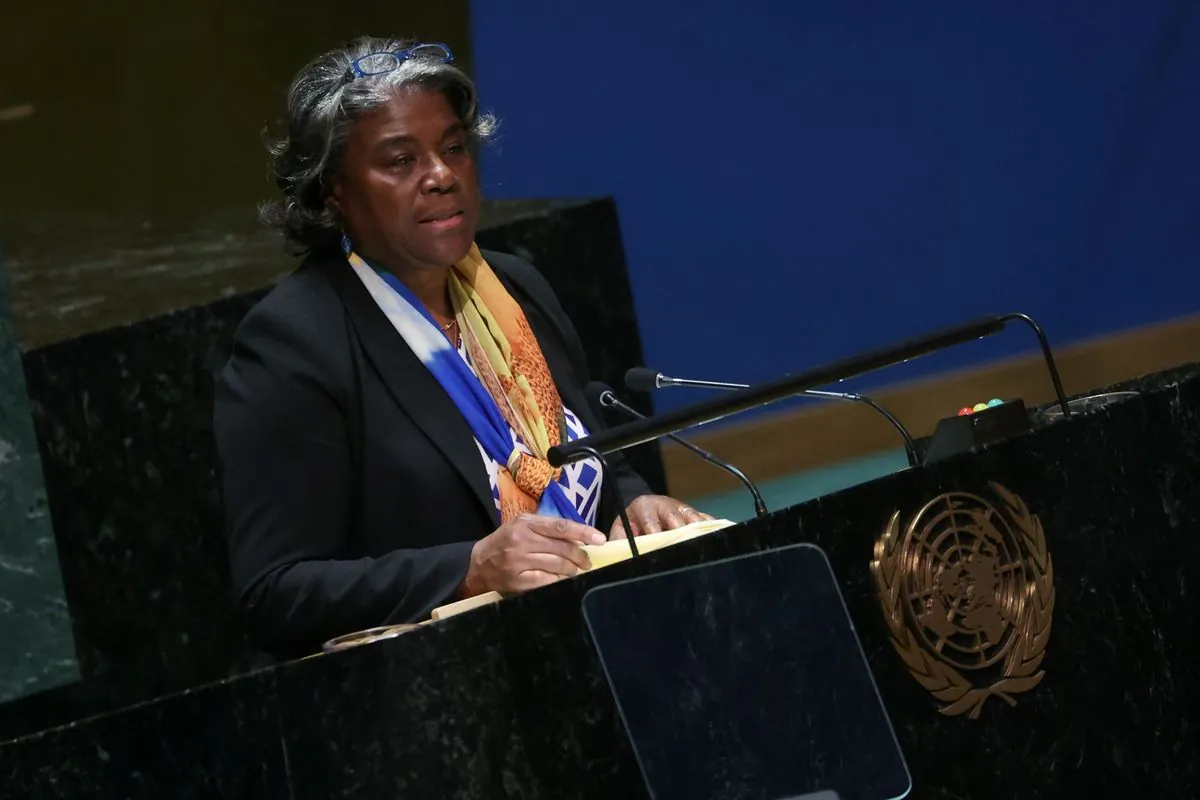The United Nations Security Council has unanimously voted to extend the arms embargo on Sudan's Darfur region until September 12, 2025. This decision comes amidst escalating tensions between Sudan and the United Arab Emirates (UAE), with both nations exchanging accusations over the ongoing conflict.
Sudan's ambassador, Al-Harith Mohamed, leveled serious allegations against the UAE, claiming it was supplying weapons to the Rapid Support Forces (RSF), a paramilitary group. Mohamed asserted that the UAE was profiting from the war through illegal gold exploitation. Sudan, the third-largest country in Africa by area, has significant gold reserves, making this accusation particularly noteworthy.
In response, UAE ambassador Mohamed Abushahab vehemently denied these claims, calling them "utterly false" and "baseless." He countered by accusing the Sudanese government of refusing to engage in peace negotiations and using starvation as a weapon of war.
The conflict in Sudan, which began in mid-April 2023, has resulted in a dire humanitarian crisis. According to the World Health Organization, over 20,000 people have lost their lives, and more than 13 million have been displaced. The situation is particularly grim in Darfur, where a famine was reported in July 2024 at a massive camp for displaced persons.
The international community has expressed deep concern over the situation. U.S. deputy ambassador Robert Wood highlighted the plight of people in Darfur, who face daily challenges including floods, restricted humanitarian aid, and human rights violations.
Human rights organizations have called for an expansion of the arms embargo to cover the entire country. Jean-Baptiste Gallopin of Human Rights Watch described the Security Council's decision not to extend sanctions as a "missed opportunity" to curb atrocities.
The conflict has reignited memories of the previous Darfur crisis, which occurred approximately two decades ago and resulted in about 300,000 deaths and 2.7 million displacements. The International Criminal Court's prosecutor, Karim Khan, stated in January 2024 that there are grounds to believe both sides may be committing war crimes, crimes against humanity, or genocide in Darfur.
As the situation continues to deteriorate, the international community is urging all parties to cease hostilities and engage in meaningful dialogue. Britain's deputy ambassador James Kariuki called on states to refrain from enhancing either side's fighting capability and instead use their influence to bring the parties to the negotiating table.
The ongoing crisis in Sudan underscores the complex geopolitical dynamics in the region and the urgent need for a peaceful resolution to prevent further suffering and instability.
